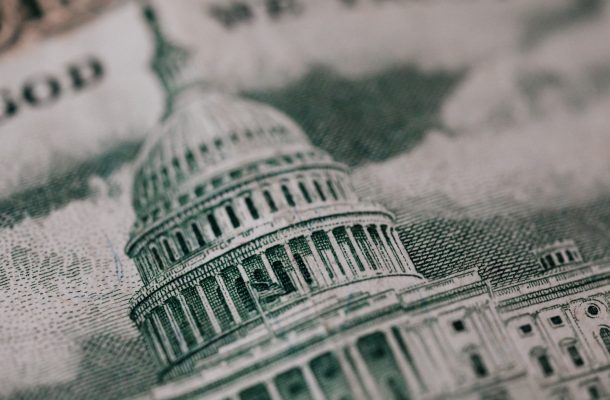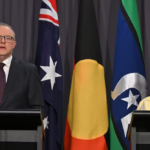Arvanitakis on American politics: The future of American democracy

In writing about American politics over the last two years, I have tried to look for deeper issues confronting the world’s superpower and what Australia could learn rather than respond to headline events. For example, when talking about the first presidential election, I was more interested in the way America’s democratic norms were being undermined than the vulgarity of the President’s behaviour.
As I have continually pointed out, it is both easy (and lazy) to blame Donald Trump for America’s woes. For example, while Trump has rightfully been criticised for his attitude and approach to the media including his refusal to answer reporter’s questions, we should not forget that President Obama also faced considerable criticism for refusing to face reporters. As Karen Travers from ABC News noted in 2010, Obama was comfortable giving speeches and interviews but not press conferences.
My point is that the Trump Administration is the result of the changing nature of American society, the fracturing of democratic norms, a changing social contract and the loss of trust in political institutions. This is evident when looking at Pew’s Public Trust in Government (1958-2019) study that highlights only 17% of Americans today say they can trust the government in Washington to do what is right “just about always” (3%) or “most of the time” (14%).
While I have my own political biases, my concern as a scholar is not the individual characters but why they are elected. For me, this highlights the health and future of our democratic institutions. I am not interested in praising or criticising political parties or individual politicians. In a time when political partisanship is everywhere, one more left-leaning academic screaming about Donald Trump’s behaviour and policies contributes little to potential dialogue.
Storming the Capitol
It is also from this perspective that it is important to understand what happened this week when a group of Trump’s radical supporters stormed the Capitol. Analysing the President’s speech, there is little doubt that Trump was trying to incite chaos – but exactly what he was expecting, no one can be sure.
Watching the events unfold, it was simultaneously astonishing and predictable. Given the way President Trump has courted right wing extremists over the years and worked to undermine the election processes, this seems to be the type of violence many were expecting on election day, but which did not eventuate. In saying that, no one could have possible foreseen the Capitol overrun by rioters.
There are two things we should remember.
The first is that over 74 million voters supported Donald Trump in the 2020 election. In rightfully condemning the violence perpetuated by the rioters, we should not forget the many who feel that Trump represented them and their grievances, who would be just as shocked by the events that unfolded. Focusing only on the rioters means that the broader issues confronting America will be forgotten.
The second is that the many of the protesters that gathered – not just the rioters – honestly believed that the election was stolen. In a December 2020 survey by researchers from Northeastern, Harvard, Northwestern, and Rutgers, more than half of Republican voters either believe President Donald Trump actually won the 2020 race or aren’t entirely sure who did win. In other words, these people believed that they were doing the right thing: seeing themselves as patriots protecting the republic.
Given the fractious nature of algorithmic driven news, it is much easier to dismiss these people as tinfoil-hat wearing conspiracy theorists than to respond to the news bubbles we are all caught in. This is not ‘blaming the media’ (nor defending the rioters), but if a quarter of the voting public are questioning the election results, there are deeper issues that must be addressed.
Furthermore, while there is no evidence that the election outcome was invalid, for the last few years a number of highly reputable news outlets have been raising concerns about the security of America’s voting machines including Politico and Wired. Concerns about ‘Russian interference’ aggravated the sense of suspicion.
There is no doubt that Ted Cruz and some of the other Republican that challenged the certification of election results are driven by opportunism. In saying this, the Senator’s message was important when he stated:
“But I would urge to both sides, perhaps a bit less certitude and a bit more recognition that we are gathered at a time when democracy is in crisis.”
No matter what you think about the Senator, he was making a point for many that remain unconvinced – one that should not be ignored.
What’s next for Republic
This leads us to the question of, what is next for the US republic? When millions of citizens believe that the biggest danger to the future of their country are their political opponents, how do you govern?
For Democrats, the events in Washington confirmed their worst fears. For Republicans, the Black Lives Matter protests and calls to ‘defund the police’ presented a ‘radical left agenda’ that played on their fears.
This division has long existed and paralysed the Obama Administration. It was also the challenge that the Trump Administration responded to by further dividing the country – something that former Whitehouse advisor, Steve Bannon, found great joy in doing by angering the ‘liberal media’.10
The question is what can President-elect Biden do?
Let’s hope that the events of this week will be the turning point that result in more work across the political divide. Now that the Democrats control the Senate, there is a chance Biden can run a reformist agenda – but for America’s democracy to survive, he has to find a way to take many Republicans with him.
Anything else could be disastrous.
Professor James Arvanitakis is the Executive Director of the Australian American Fulbright Commission – one of the world’s most prestigious international education and cultural exchange programs.















